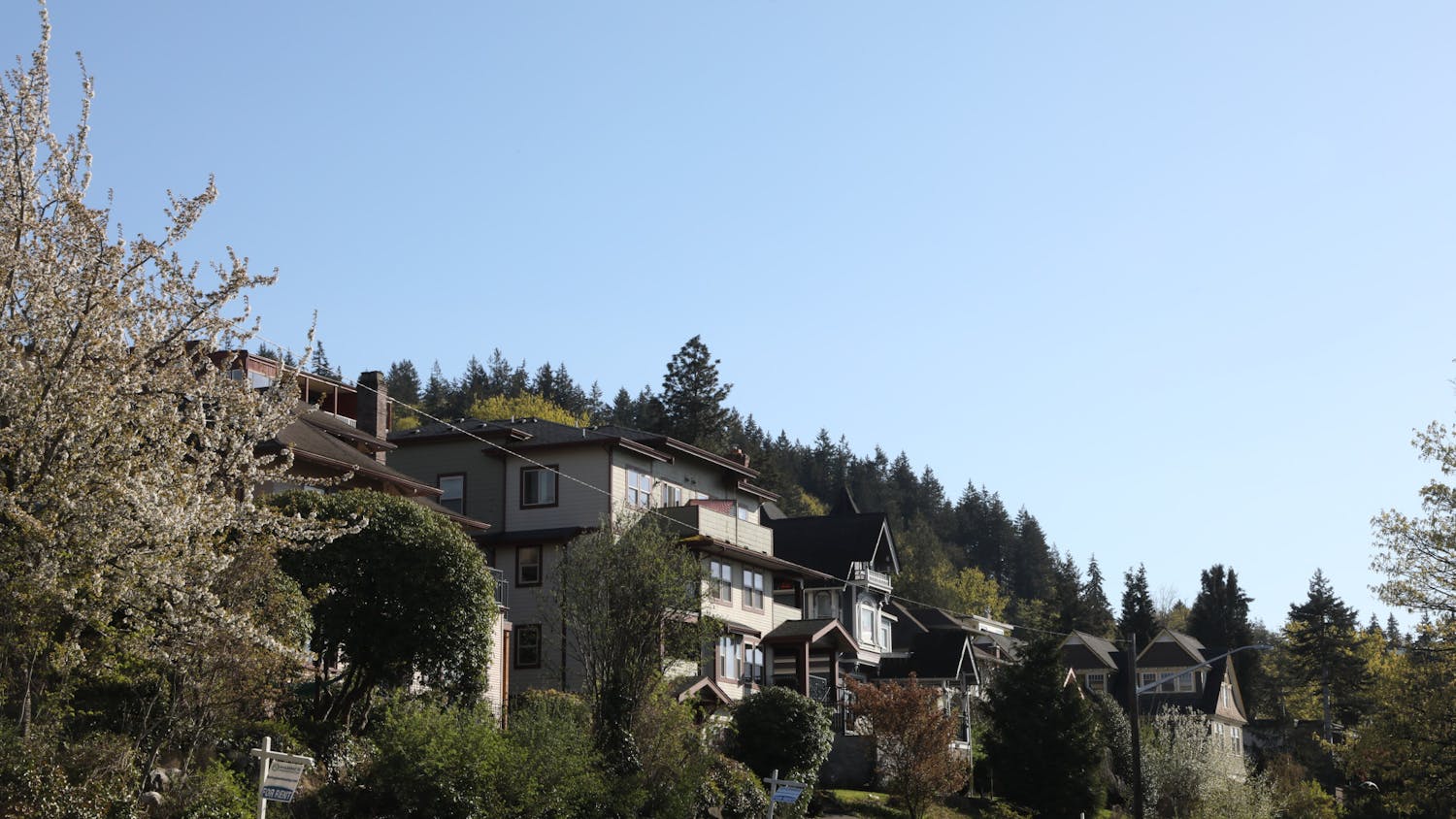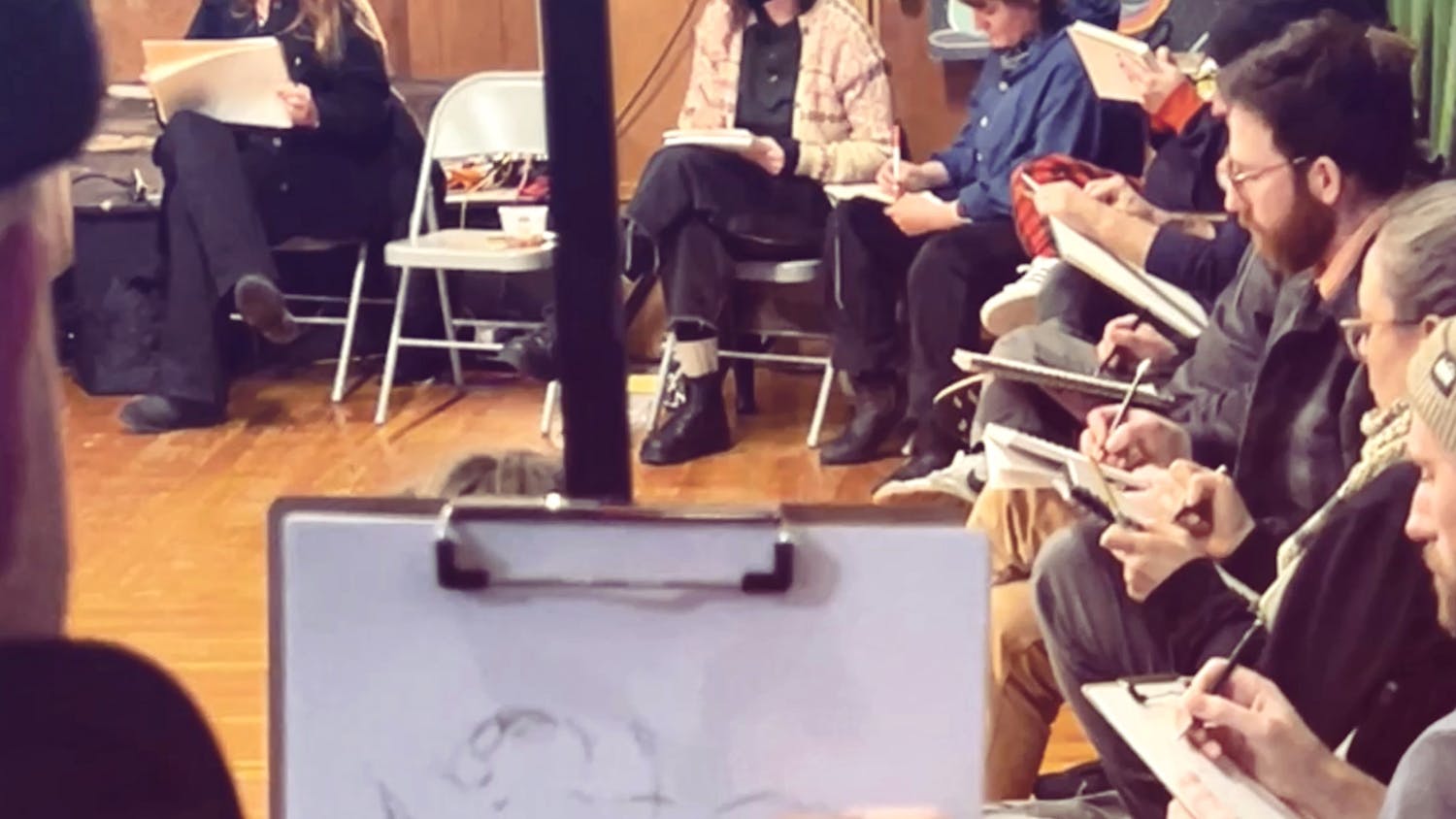Imarisha has a slideshow with audio commentary in case you missed the presentation. // Video by Walidah Imarisha
Zoe Buchli
Most Americans view racism as an issue born in the South, but it has deep roots in the Pacific Northwest as well, beginning with settlers in Oregon in the 19th Century.
Walidah Imarisha, a writer, poet, professor and civil rights advocate, spoke to hundreds of Western students and members of the Bellingham community in the Performing Arts Center on Tuesday.
Imarisha took the audience through a timeline of black history in the Pacific Northwest, specifically Oregon.
“You have to look at history,” Imarisha said. “The efforts to eradicate the long-memory, the efforts to erase our ability to look to history and learn from that are incredibly real.”
“Long memory,” a term Imarisha borrowed from folk singer Utah Phillips, is the idea of preserving and remembering important parts of history.
Without the “long-memory,” it is difficult to understand that Oregon and the entirety of the Pacific Northwest region were founded as a racist white utopia, Imarisha said.
Western student Mark Hussian said this is an issue that seems especially pertinent right now.
Imarisha began by discussing the Oregon Donation Land Act of the 1850s, which gave approximately 2.5 million acres of free land to whites to build the racist haven.
in 1844, Oregon outlawed slavery, but only because it was hurting white people’s income, Imarisha said. Outlawing of slavery then produced the Oregon Black Exclusion Law, which criminalized black people and prevented them from settling in Oregon.
“We tell simplistic myths like if you’re anti-slavery, you’re good,” Imarisha said. The reality was that there were still people who were anti-slavery and simultaneously anti-black.
Imarisha then moved on to discuss modern day, mentioning sundown towns, which are towns that are purposefully all-white enclaves that still exist today. She spoke about gentrification and redlining, which she referred to as strategic ways people of color are removed from neighborhoods and housing communities.
“Housing and location is a huge way racism persists to this day,” Imarisha said.
She referenced Karen Gibson’s “Bleeding Albina,” a work about the Albina neighborhood in Portland that was gentrified when 70 acres of land were taken from black people. Imarisha also talked about how “urban renewal” is a term frequently used by governments to cover up gentrification.
In the 1970s, more money was brought in for urban renewal, Imarisha said. “If you could call it a slum, you could get federal funding to rehabilitate that.”
During the 1980s and 90s, an economic and social bomb hit oppressed and marginalized communities, which opened the door even more for gentrification, Imarisha said.
Imarisha rounded out the timeline by talking about prisons, and how there are massive amounts of over-policing that go hand-in-hand with gentrification.
“Gentrification is violence,” Imarisha said.
Imarisha ended her talk with examples of how communities of color have organized and mobilized to fight racial injustice, recognizing the leadership of people of color to make all of the advances in this area.
“People of color don’t need saviors. They need allies,” Imarisha said.
Western organized the event as a celebration of Martin Luther King Jr. Day.
Western committees work to find diverse events for campus, and this year they wanted to find someone who was from the Northwest, Western student and event MC Josiah Scott said.
“More often than not, people would rather hear perspectives from someone that’s closer to home to them,” Scott said.
The event was organized by the Martin Luther King Committee, which is comprised of people from various departments, who collaborated with students and various groups to support the event, Scott said.
Western student Molly Reetz heard about the event from the Human Rights Convention at Whatcom.
Learning more about the history of the Pacific Northwest in this timeline format definitely gave it more detail, Reetz said. “The sundown towns were new for me.”





